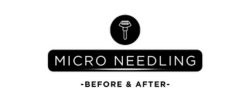So, you’ve decided to pamper yourself with a microneedling session – a fantastic choice! Before you step foot into the spa or clinic, however, there are a few things you should keep in mind. In this article, we’ll guide you through what not to do before microneedling, ensuring that your treatment is a success and produces the best possible results. From avoiding excessive sun exposure to steering clear of certain products, you’ll discover the essential do’s and don’ts for prepping your skin. Get ready to enhance your skincare routine and achieve that radiant, flawless complexion you’ve always desired.
Avoid Sun Exposure
When preparing for a microneedling procedure, it is crucial to avoid direct sun exposure for at least a week before the treatment. Excessive sun exposure can cause the skin to become more sensitive and increase the risk of complications during and after the procedure. It is recommended to protect your skin by wearing sunscreen with a high SPF and covering up with clothing if necessary. Tanning beds should also be avoided, as they can have similar effects on the skin as natural sunlight.
Do not Use Retinol Products
To ensure the best outcome for your microneedling procedure, it is important to avoid using skincare products that contain retinol or retinoids for at least a week beforehand. Retinol is a powerful ingredient often found in anti-aging products, and it can significantly increase skin sensitivity. Using retinol products before microneedling may lead to irritation and discomfort during the procedure. To prevent any potential complications, it is best to skip these products in the days leading up to your appointment.

Skip Chemical Peels
If you are considering microneedling, it is advisable to avoid getting chemical peels or undergoing any other skin treatments that may cause skin exfoliation. Chemical peels can thin the skin, making it more vulnerable to the microneedling process. By skipping these procedures beforehand, you can protect your skin’s natural barrier and ensure a safer and more effective microneedling experience.
Avoid Blood Thinners
If possible, it is recommended to discontinue the use of blood thinning medications or supplements before undergoing microneedling. Blood thinners can increase the risk of bleeding and bruising during and after the procedure. To minimize these risks, it is important to consult with your healthcare provider and follow their guidance on when to stop taking these medications or supplements prior to your microneedling session.

Do not Shave Right Before
While it may seem tempting to have a smooth, hair-free treatment area before microneedling, it is best to avoid shaving immediately before the procedure. Shaving can cause skin irritation and make the microneedling process more uncomfortable than necessary. It is advisable to shave the treatment area at least a day or two before your scheduled appointment to give your skin time to recover and minimize any potential irritation.
Avoid Harsh Skincare Products
In the days leading up to your microneedling session, it is crucial to avoid using harsh skincare products that contain acids or strong active ingredients. These products can potentially irritate your skin and increase the risk of complications during the procedure. It is best to stick to gentle cleansers and moisturizers that will not disrupt the natural balance of your skin. If you have any doubts about the products you are using, consult with your skincare professional before your microneedling appointment.

Don’t Forget to Cleanse
Thoroughly cleansing your skin before a microneedling procedure is essential. By removing excess oils, dirt, and makeup, you allow the microneedling process to be more effective. Clean skin also reduces the risk of any external contaminants interfering with the procedure. Prior to your appointment, make sure to use a gentle cleanser to wash your face, paying special attention to the treatment area. This simple step will help create an optimal environment for the microneedling process.
Avoid Waxing or Hair Removal
Before undergoing microneedling, it is important to refrain from any waxing or hair removal treatments in the area that will be treated. These procedures can irritate your skin and make it more sensitive during microneedling. To avoid any unnecessary discomfort or potential complications, it is recommended to skip these hair removal methods leading up to your microneedling appointment. It is always best to consult with your aesthetician or dermatologist if you have any questions or concerns about specific hair removal methods.
Avoid Alcohol Consumption
For at least 24 to 48 hours before your microneedling session, it is important to refrain from consuming alcohol. Alcohol can dehydrate the skin, making it more sensitive and possibly leading to discomfort during the procedure. Proper hydration is crucial for the overall health and appearance of your skin, so it is best to avoid alcohol and focus on drinking plenty of water in the days leading up to your microneedling appointment.
Do not Ignore Medical Conditions or Infections
When preparing for a microneedling procedure, it is essential to inform your provider about any medical conditions or infections you may have. Certain conditions or infections may contraindicate the microneedling procedure or require special precautions to ensure your safety and well-being. By sharing this information with your provider, they can assess your individual situation and provide appropriate guidance to achieve the best possible outcome for your microneedling treatment.
In conclusion, preparing for a microneedling procedure involves avoiding certain activities and products that may interfere with the treatment or increase the risk of complications. By following these guidelines, including avoiding sun exposure, retinol products, chemical peels, blood thinners, shaving right before, harsh skincare products, waxing or hair removal, alcohol consumption, and by informing your provider about any medical conditions or infections, you can optimize your microneedling experience and ensure the best possible results for your skin. It is always recommended to consult with a skincare professional to address any specific concerns and receive personalized advice tailored to your needs.

